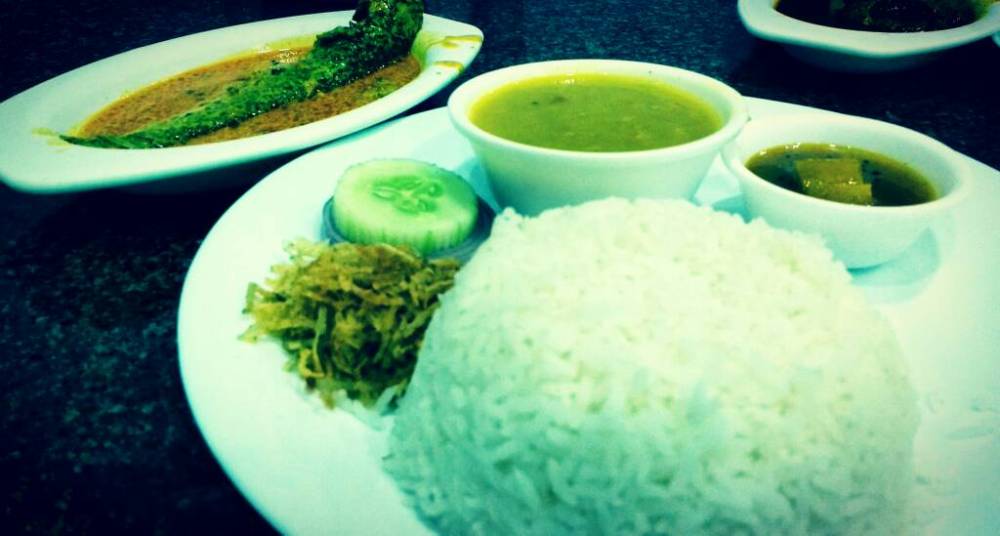[Introduction]
An average Bengali gentleman from Calcutta spends a quarter of his lifetime in one of the most iconic centres for constructive political and cultural debate – the rundown, hurtling terror-on-wheels, affectionately called the mini-bus.
The typical mid-summer afternoon in Calcutta can be quite intimidating for the uninitiated. On such days, a ride in one of the quintessential symbols of post-independence West Bengal can leave an indelible mark on one’s life. Especially if you happen to tread on the foot of the afore-mentioned Bangali gentleman. On worse days, a mild push (attributed to the failing braking mechanism of the innocuous looking red-yellow murderer) might do the trick. Take for instance that a strike has been called by the opposition party, and the governing party has strictly forbidden any form of delinquency at work. The siesta-deprived, overworked gentlemen, already in an unwholesome mood, are now forced to return in what essentially is a lopsided box, precariously balanced on wobbling wheels. (As described by one of our professors, during a lecture on steel structures, who had the unfortunate habit of laughing uncontrollably at his own jokes – and we were forced to laugh along, often expecting higher grades in return.) What you have essentially done, is infringed upon the sacred space of the Bangali babu and must now ready yourself for a barrage of insults that will severely question your flawed upbringing. Soon doubts shall be cast on the (supposed) myriad affairs of your parents, your alarming political views, and how your generation signals the end of a golden generation of Bangaliyana (Bengali pseudo-intellectualism,) affirmed by the “thik bolechen moshai” from the other gentlemen. [“Correctly said, my good Sir”] Do not lose heart though. Like the typical adda (an informal gathering of retirees, or neighbourhood aunties who draw unparalleled pleasure in politics and discussing illicit romantic liaisons, respectively,) a few courteous gentlemen shall soon jump to your defence. Soon what started out as a mild push, on a somnolent summer afternoon, has transformed into a full blown battle between two groups of balding, middle aged, sweaty gentlemen – while the conductor, generally a Kana (Bengali slang for a one eyed man) continues to nonchalantly rope in passengers into the bursting little bus.
So it came as a pleasant surprise when, on bumping into a gentleman in a bus in Chennai, he smiled and apologised. That was the closest I had ever been to living in Canada.

[Bengalis in Strange Lands]
There is no denying the fact that Bengalis love their fish. So when my half-Bengali (quarter Odiya and remainder Bihari) neighbour appeared at my door, almost suicidal – it was clear what had to be done. We took a stroll to the nearest Bengali restaurant, a very unassuming little place (called Bengali Fun Foods – ironic, since they offered mostly very serious food), located right next to a pile of putrid refuse (a common sight in Chennai). This particular road in Chennai, called the Greams Road, is lined with hospitals that cater to every conceivable part of the human body. As such, the hypochondriac Bangalis perennially frequent this heaven on earth.
The pleasure of listening to your mother-tongue being spoken in a foreign land is undeniable. Naturally, some of us go overboard with our emotions. Conversations quickly progress from how delightful it is to find a little place like this in the middle of all the idli-gobbling and sambhar-chugging madness, to how the Marxist government has ruined the state of Bengal, to how the stomach ache got to the point when a visit to this searing city became almost unavoidable. (We are constantly embroiled in a mental battle over whose illness can draw the most poignant sympathetic sigh.) In some ways, Bengalis strongly resemble the French – behind the façade of gentle self-deprecation and the lazy, nostalgic celebration of the Bangaliyana of the heydays, lies a deep seated disdain for the various communities in the world. [A scene from favourite TV series, Scrubs is pertinent here: “You made fun of your son, he made fun of his son. And then, you made fun of his son.” We shall treat the matter at length, when we discuss social media and Bengalis.]
Of course, all the camaraderie goes for a toss when the disconcerted waiter whispers in the boyoshko (the kind of aged that elicits profound respect in you) middle class gentleman’s ear, “Dada, bhaat ta kintu extra.” [“Sir, extra rice is chargeable.”] Three things happen simultaneously:
- There’s an expression of utter disbelief, followed by speechlessness – that gives way to a resounding “Haan?” [“What do you mean? Are you serious?”] The sheer terseness of the expression signals pure, powerful bewilderment.
- The disbelief gives way to uncontrollable rage, as the bhodrolok (your typical rice eating, mostly docile, moustached gentleman from the neighbourhood) pierces right through the waiter’s petrified soul.
- The anger finally subsides, and all that is left is an expression of profound anguish over the blatant disregard for the code that binds Bengalis all over the world, together – you simply do not charge for extra rice!
With that simple act of heresy, the waiter has shattered our single unquestionable right to the free rice of the world.
So when the apprehensive waiter presented my friend with this culture-threatening conundrum, and he merely shrugged, the entire Bangali community, seated at the restaurant, gave out a collective sigh of relief.
The fish, my much cheered up neighbour agreed, was delectable.
[The grill is just warming up.]
Your post brought back memories of my school days in Calcutta. It brings alive the world seen in Ray’s movies. Thanks for nostalgia. Keep writing.
LikeLiked by 1 person
Wow, that is some encouragement.
Thanks a ton!
LikeLike